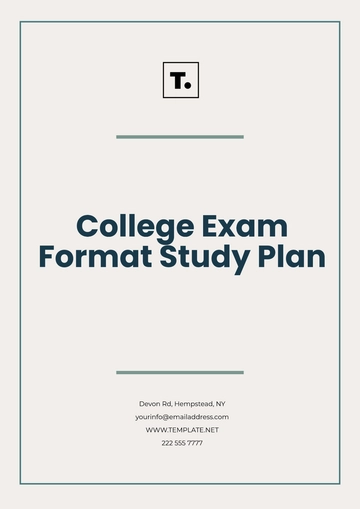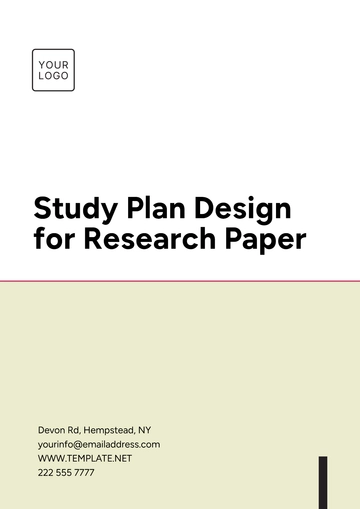Free Hourly Academic Study Plan

This strategic and objective-based hourly academic study plan is designed to streamline your study sessions and optimize your learning effectiveness. By incorporating structured time slots and prioritizing tasks, you can achieve your academic goals more efficiently. Use the following framework to organize your study hours comprehensively and professionally.
1. Identify Objectives
Begin by clearly defining your academic goals for each subject area. This will guide your study sessions and ensure that each hour is purposefully directed towards achieving specific outcomes.
1.1 Subject Goals
Mathematics: Understand calculus principles and apply them to solve complex problems.
Science: Master the fundamentals of physics and apply them to real-world scenarios.
Literature: Analyze and interpret classical texts with a critical perspective.
2. Time Management
Create a detailed schedule that allocates specific time slots for each subject and task. Time management is crucial for ensuring balanced study sessions across different disciplines.
2.1 Hourly Schedule
Time Slot | Subject | Task | Objective |
|---|---|---|---|
8:00 AM - 9:00 AM | Mathematics | Calculus Exercises | Solve 10 differential equations |
9:00 AM - 10:00 AM | Science | Physics Concepts | Understand Newton's Laws |
10:00 AM - 11:00 AM | Literature | Text Analysis | Critically analyze assigned text |
11:00 AM - 12:00 PM | Review | Summarize and Review | Recap morning session insights |
1:00 PM - 2:00 PM | Science | Experiment Review | Analyze lab experiment results |
2:00 PM - 3:00 PM | Mathematics | Theory Revision | Revise calculus theory |
3:00 PM - 4:00 PM | Literature | Essay Writing | Draft analytical essay |
4:00 PM - 5:00 PM | Revise | Summary and Reflection | Reflect on day's learning |
3. Strategic Study Techniques
Implement effective study techniques to enhance your retention and comprehension of the material.
3.1 Techniques
Active Recall: Routinely test your knowledge to reinforce learning.
Spaced Repetition: Schedule content reviews at increasing intervals for long-term memory retention.
Mind Mapping: Create visual representations of key concepts to understand relationships between ideas.
4. Continuous Evaluation
Regularly evaluate the effectiveness of your study plan. Make necessary adjustments to improve productivity and achieve desired outcomes.
4.1 Evaluation Criteria
Completion of set objectives for each time slot.
Quality of understanding and retention of material.
Ease of adapting and adhering to the schedule.
By following this hourly academic study plan, you can approach your studies strategically with a clear focus on objectives, well-managed time, and effective techniques to ensure academic success.
- 100% Customizable, free editor
- Access 1 Million+ Templates, photo’s & graphics
- Download or share as a template
- Click and replace photos, graphics, text, backgrounds
- Resize, crop, AI write & more
- Access advanced editor
The Hourly Academic Study Plan Template offered by Template.net is the perfect tool to organize your study schedule with ease. This customizable, downloadable, and printable template keeps you on track with every hour meticulously planned. Designed to suit your unique needs, it’s also editable in our AI Editor Tool, allowing you to personalize and adapt it effortlessly for optimal productivity.





























